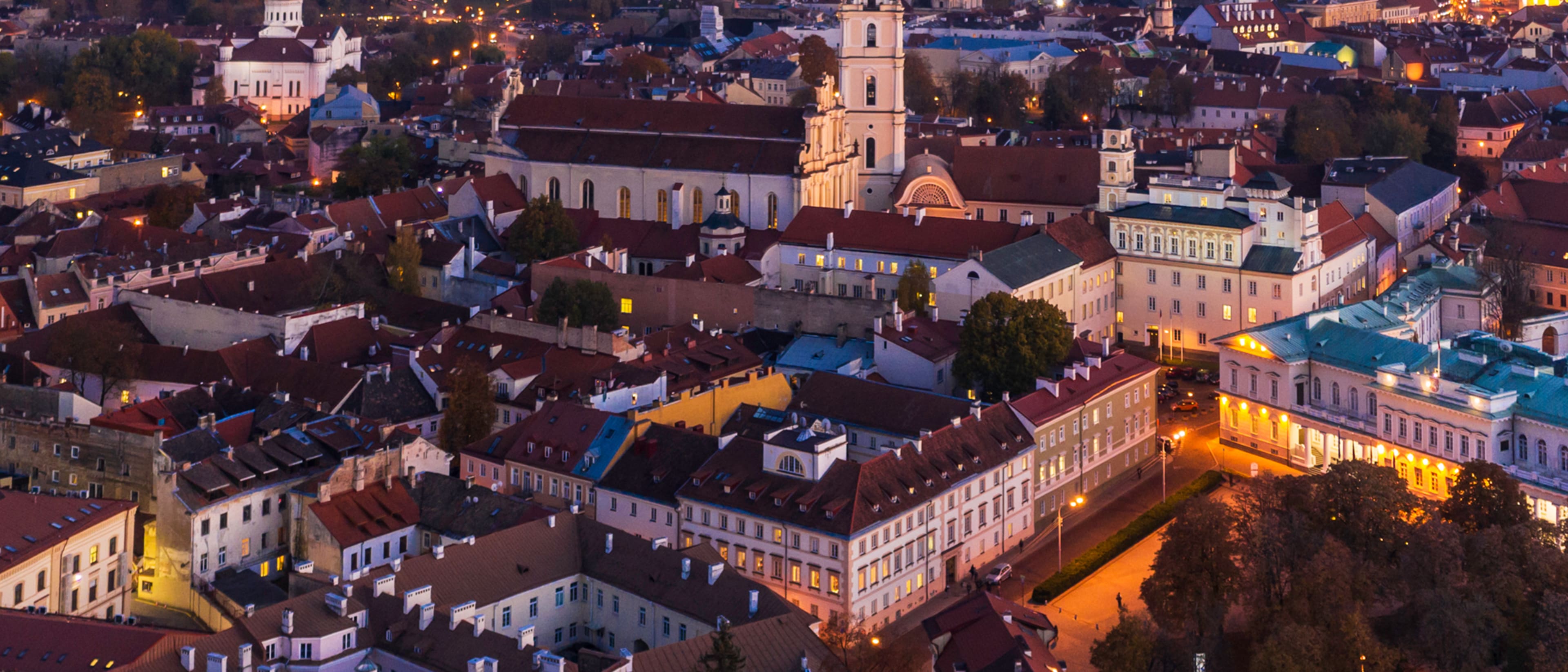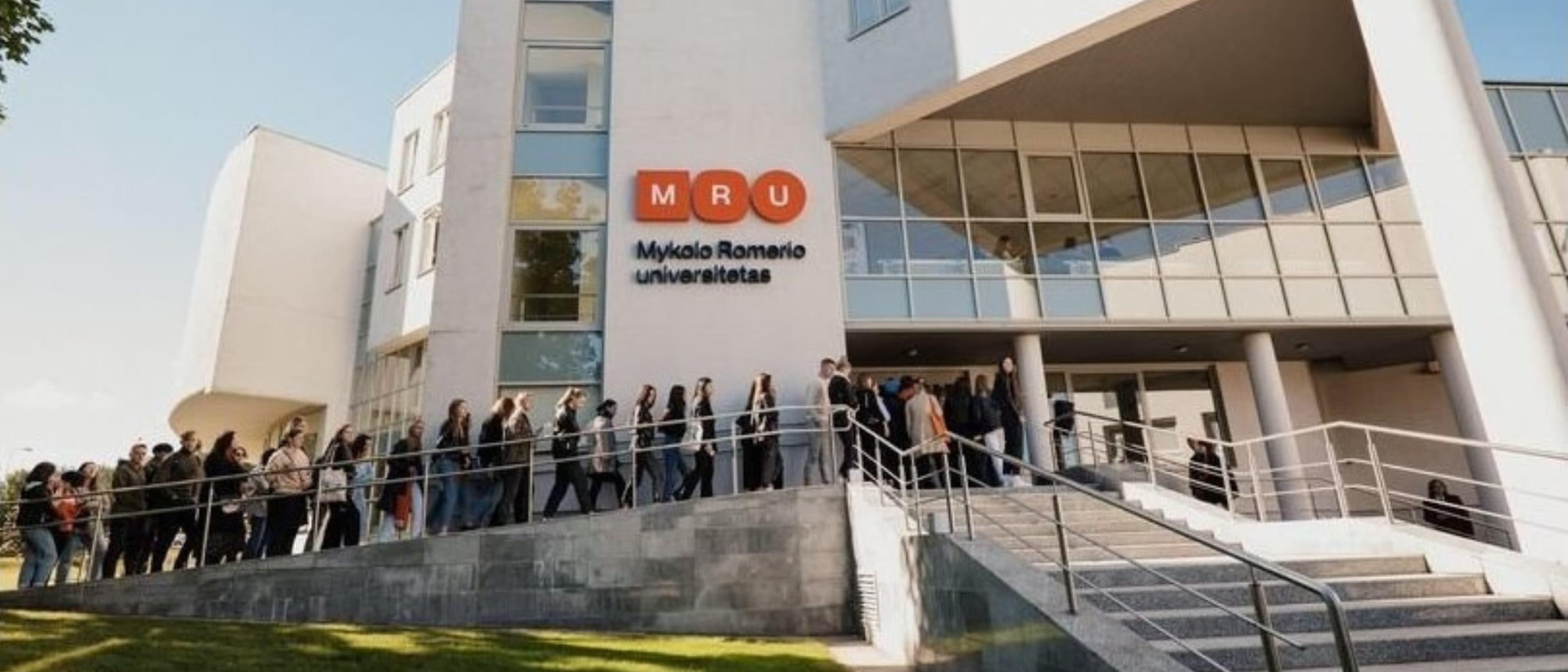Filters
Filters
- Europe
- Lithuania
- Humanities Programs
- Philology
Sort by
5 Philology Degree Programs in Lithuania


Promoted
Vilnius University
Bachelor in Spanish Philology
- Vilnius, Lithuania
Bachelor's degree
Full time
4 years
On-Campus
English
The Bachelor in Spanish Philology programme is open to candidates with no Spanish proficiency. Learning of the Spanish language shall commence upon the student’s admission. The program offers students the solid written and spoken communication skills required for workplace success in Spanish (C1), as well as a knowledge of the fundamentals of Spanish linguistics, literature and the culture of Spanish-speaking countries. The curriculum includes a diverse range of course units that are designed to help students develop their language skills, including the advanced writing, speaking and research skills needed to become successful.


Promoted
Mykolas Romeris University
Bachelor in English for Specific Purposes and the Second Foreign Language
- Vilnius, Lithuania
Bachelor's degree
Full time
42 months
On-Campus
English
How does language influence communication? What role can I play in establishing a dialogue between people of different cultural backgrounds? What languages can I learn to facilitate inter-European or inter-Asian contact? If you find yourself grappling with any of these questions, or wondering how studying can help you to answer them all, language studies might be for you. At MRU, we offer bachelor studies in English for Specific Purposes and the Second Foreign Language – a high-end education of 3 and a half years, perfect for those seeking to enter into the fascinating field of philology and to find work in a multicultural environment.


Vilnius University
Bachelor in Central and East European Languages and Cultures (Russian Studies)
- Vilnius, Lithuania
Bachelor's degree
Full time
4 years
On-Campus
English
The Bachelor in Russian Philology programme is open to candidates with no Russian proficiency. Learning of the Russian language shall commence upon the student’s admission. Studies with a perfect balance of language and literature also provide knowledge of Slavic culture and ties between Russian literature and culture and Lithuania.


Vilnius University
Bachelor in English Philology
- Vilnius, Lithuania
Bachelor's degree
Full time
4 years
On-Campus
English
The Bachelor in English Philology programme offers students the solid written and spoken communication skills required for workplace success in English (C1–C2), as well as the fundamentals of English linguistics, literature and the culture of English-speaking countries.
Best programs for you
Answer a few questions and we'll match you with programs!


Vilnius University
Bachelor in Italian Philology
- Vilnius, Lithuania
Bachelor's degree
Full time
4 years
On-Campus
English
“All roads lead to Rome!" This ancient saying is still relevant today. The Italian language, literature, and culture can open up many diverse paths. Students of Bachelor in Italian Philology will learn the Italian language professionally, and become familiar with the history of Italy, and the history of Italian literature and language.
Popular Humanities Programs Philology degree types
Popular study format
Learn more about Philology degree programs in Lithuania
Studying Philology in Lithuania opens the door to understanding language, literature, and culture from a unique perspective, allowing you to develop critical analytical skills and a deep appreciation for linguistic diversity. This field not only focuses on philological theory but also emphasizes practical applications in communication and translation.
Through courses in linguistic analysis, literary criticism, and sociolinguistics, students learn to interpret texts and examine language’s relationship with culture. Practical training often involves engaging in translation projects and working with various media, which helps build skills in crafting nuanced translations and developing effective communication strategies. The environment in Lithuania encourages independent thought as students explore different languages and literary traditions.
Graduates can pursue diverse career paths, including roles in education, publishing, or cultural institutions, where they apply their expertise in language and literature. Many also find opportunities in translation and interpretation, connecting cultures through their language proficiency. The study of Philology enriches both personal and professional development, fostering a deeper understanding of human communication and cultural heritage.